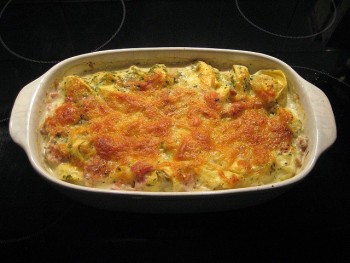How to Funeral Etiquette: Bringing Food to a Funeral

How to Funeral Etiquette: Bringing Food to a Funeral
One of the most common funeral gifts is to bring food to the gathering that takes place after the memorial service is over. Often served as a buffet or luncheon, this meal allows people to gather in a less formal atmosphere to share memories of the deceased and bring comfort to one another.
While it may seem easy to bring food to the event—after all, you just have to make a favorite casserole and bring it to the service—there is actually quite a bit of coordination that goes into making a large-scale gathering of this type work. What if the dish needs to be warmed up? Is it acceptable to bring food into the funeral home? Can you hire someone to deliver sandwiches while you are otherwise engaged in attending the funeral?
All of these questions can complicate matters, which is why it is best to follow this quick guide to bringing food to a funeral.
- Make sure your contribution is needed/wanted. The family may have hired caterers to oversee the funeral buffet, or their church group might be planning and taking care of everything. They might even be planning to feed everyone at a restaurant. Always ask first to make sure the meal will be potluck style.
- Ask about the facilities. If the meal is being served at a private home or social hall, there is a good chance refrigerators and stoves will be available (and you may be able to drop off your dish in advance). A meal at a rec center or park won’t have the same facilities. You will need to coordinate your own dish accordingly.
- Avoid bringing food to the funeral. Do not bring a dish into the funeral home or cemetery unless you have been specifically told there will be room for it. If you won’t be able to return home to retrieve the food after the service takes place, either make plans to leave it in your car or have a friend drop it off for you at a more appropriate time.
- Attend to dietary needs. Always ask about issues related to diabetics, gluten intolerance, peanut allergies, and other health restrictions.
- Make it easy to retrieve your dish. Either use a disposable pan or make sure you put a label on the bottom or side of it. Coordinating all the pots and pans can be a real hassle during cleanup, so having yours easily identifiable is a good way to make things easier on the family.
- Consider making the gift after the funeral takes place. Gifts of food tend to work just as well if they are made in the days and weeks following the funeral. As the family learns to cope with their loss, they may appreciate not having to do some of the cooking.
Gifts of food are common at a funeral, but they are not always easy to deliver. If you cannot find a way to make a hot casserole or cold salad work, consider something easy like cookies or cake. In the end, it is not what you bring so much as your willingness to pitch in that matters.


